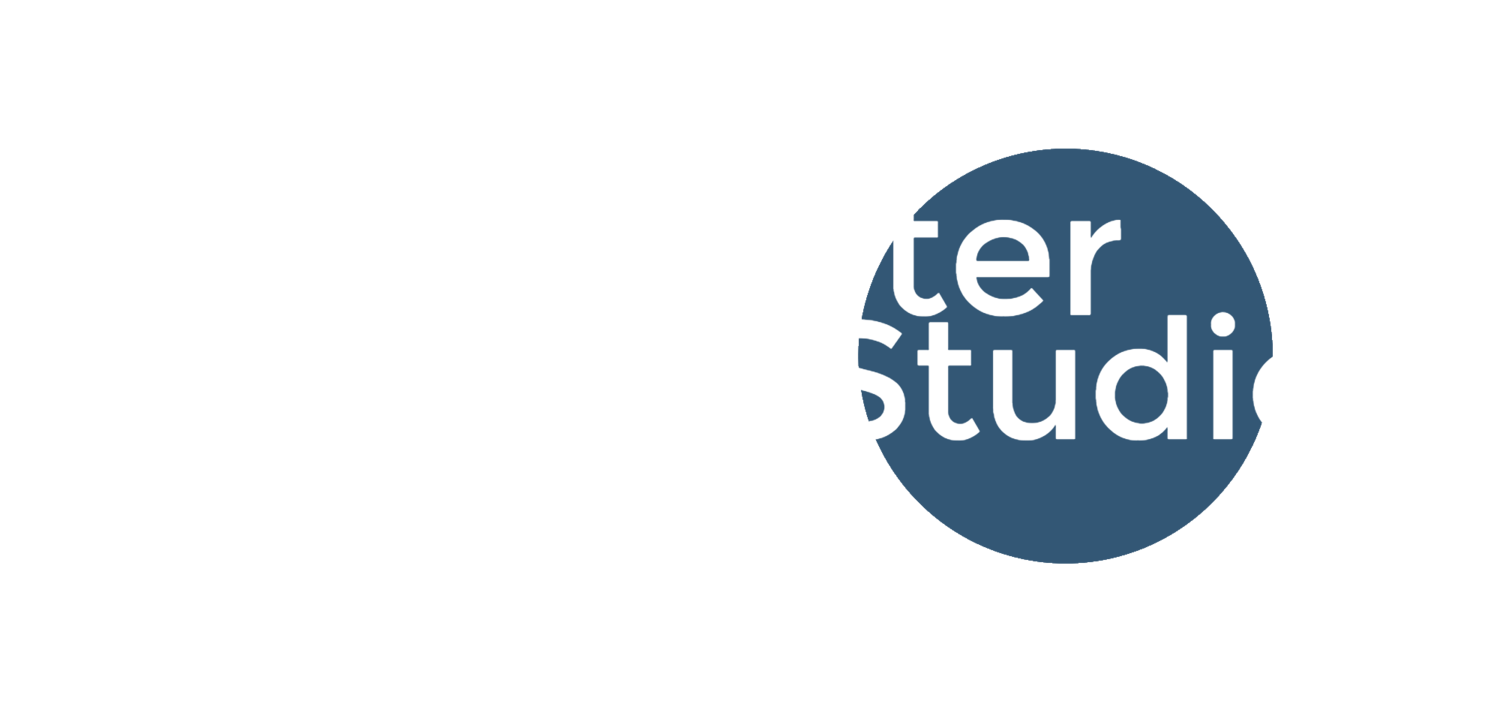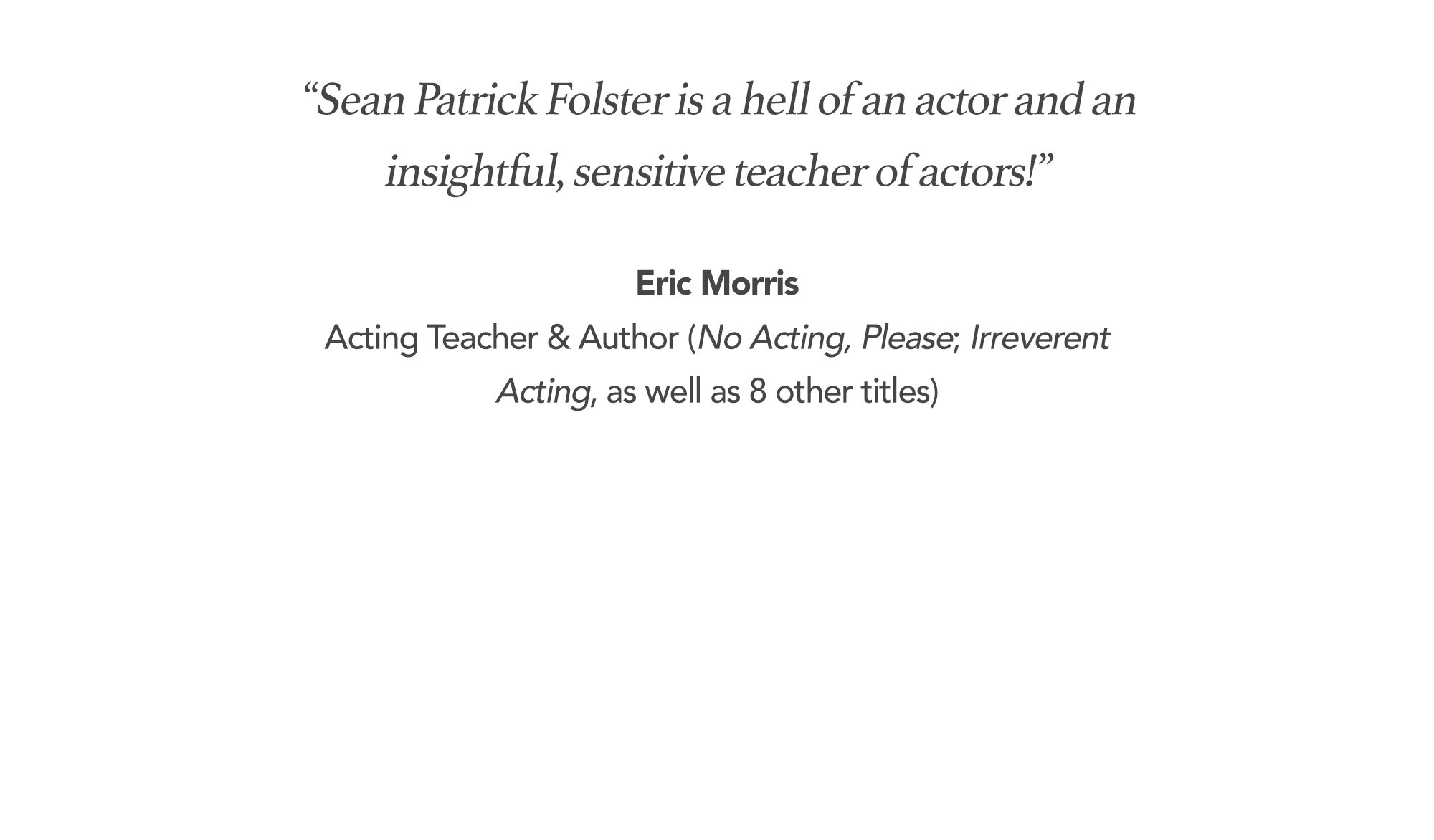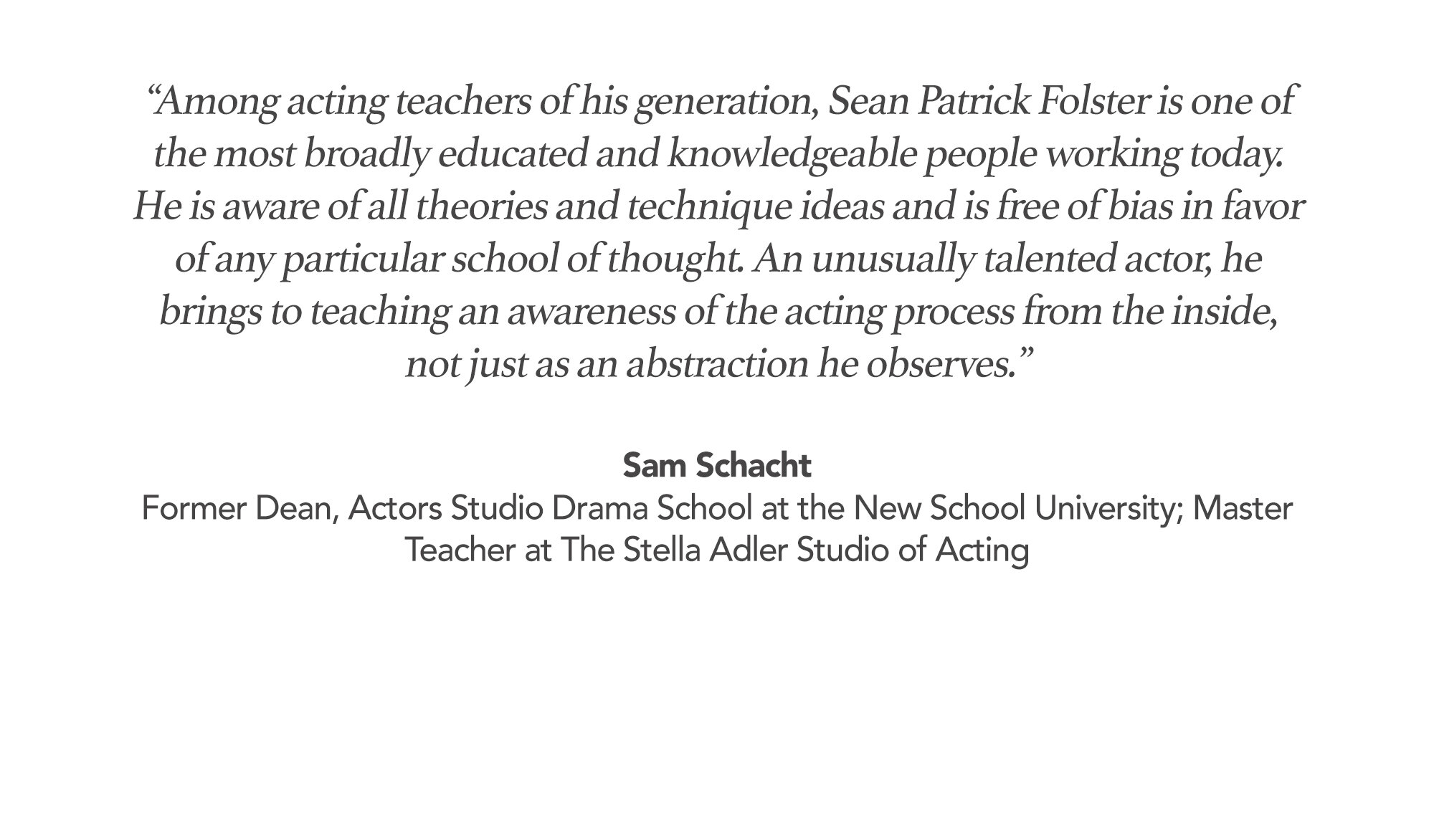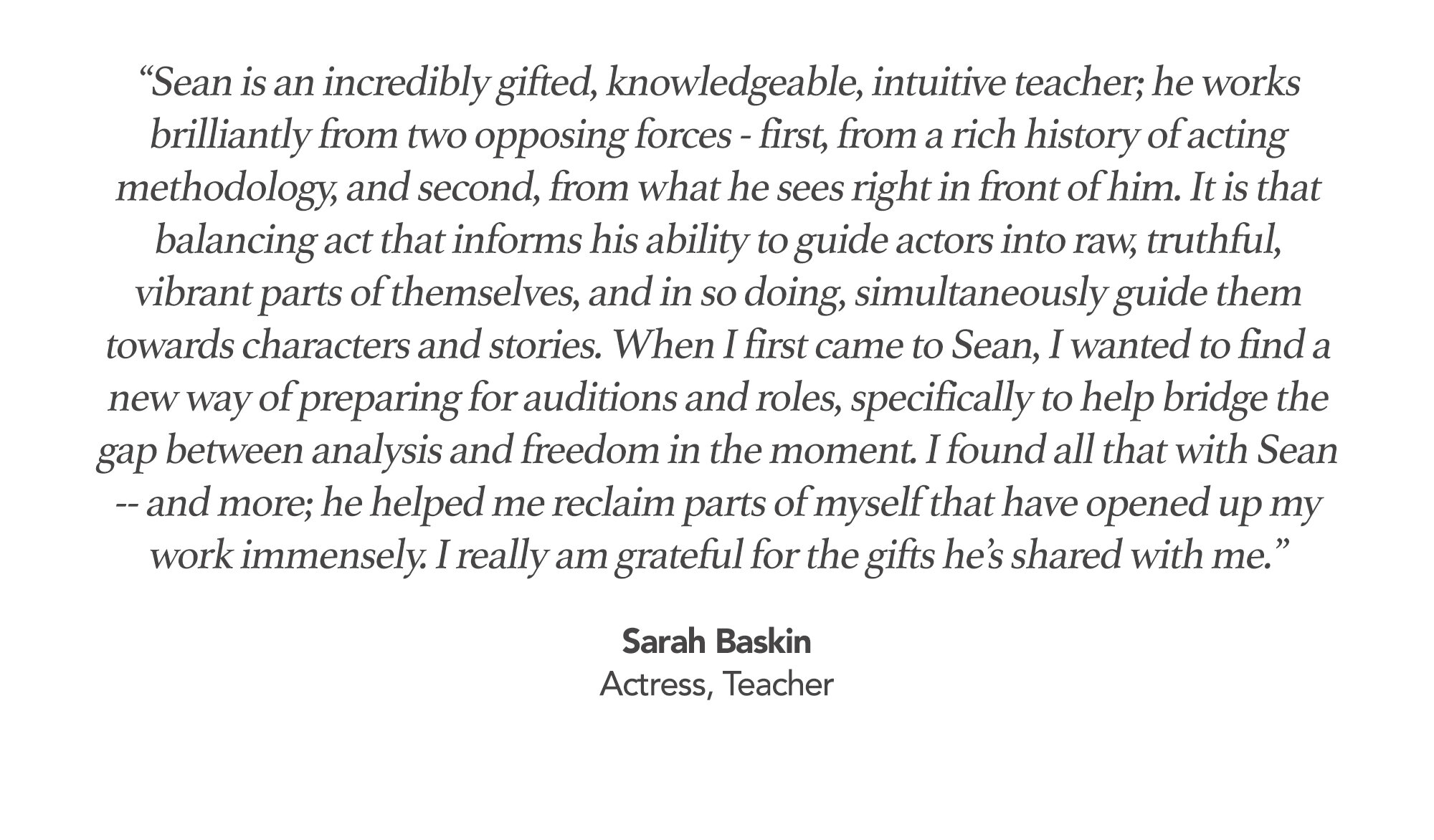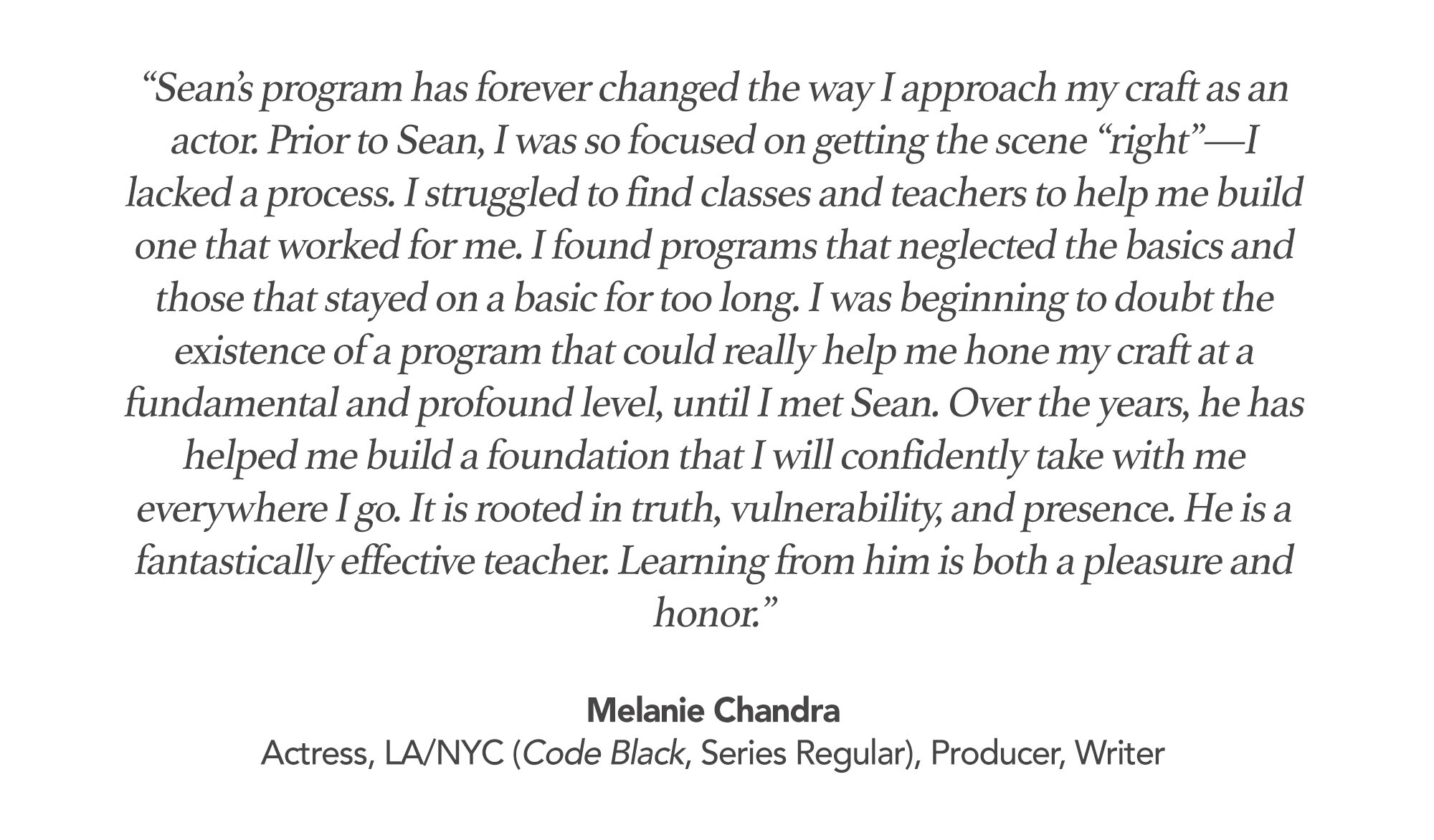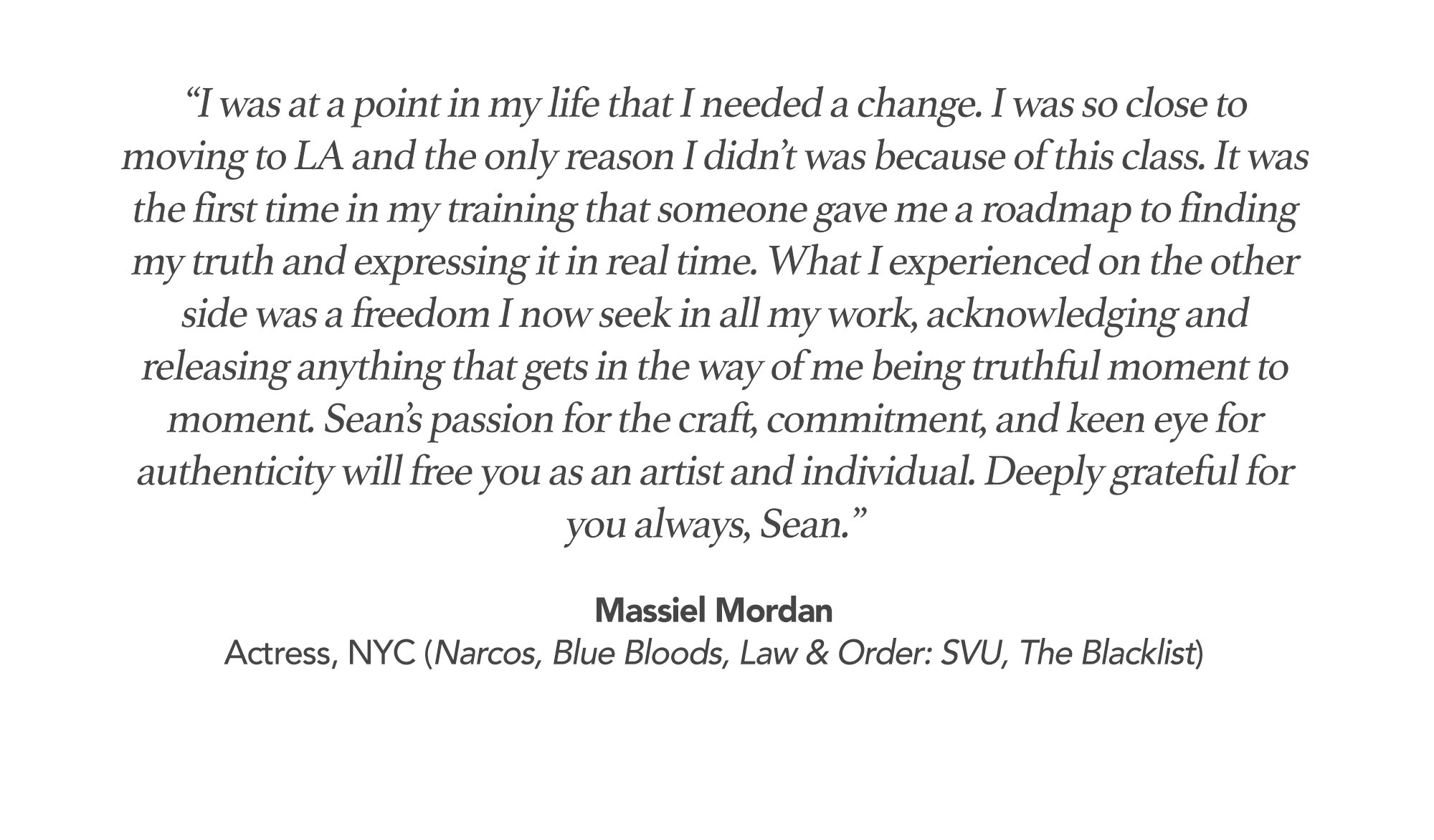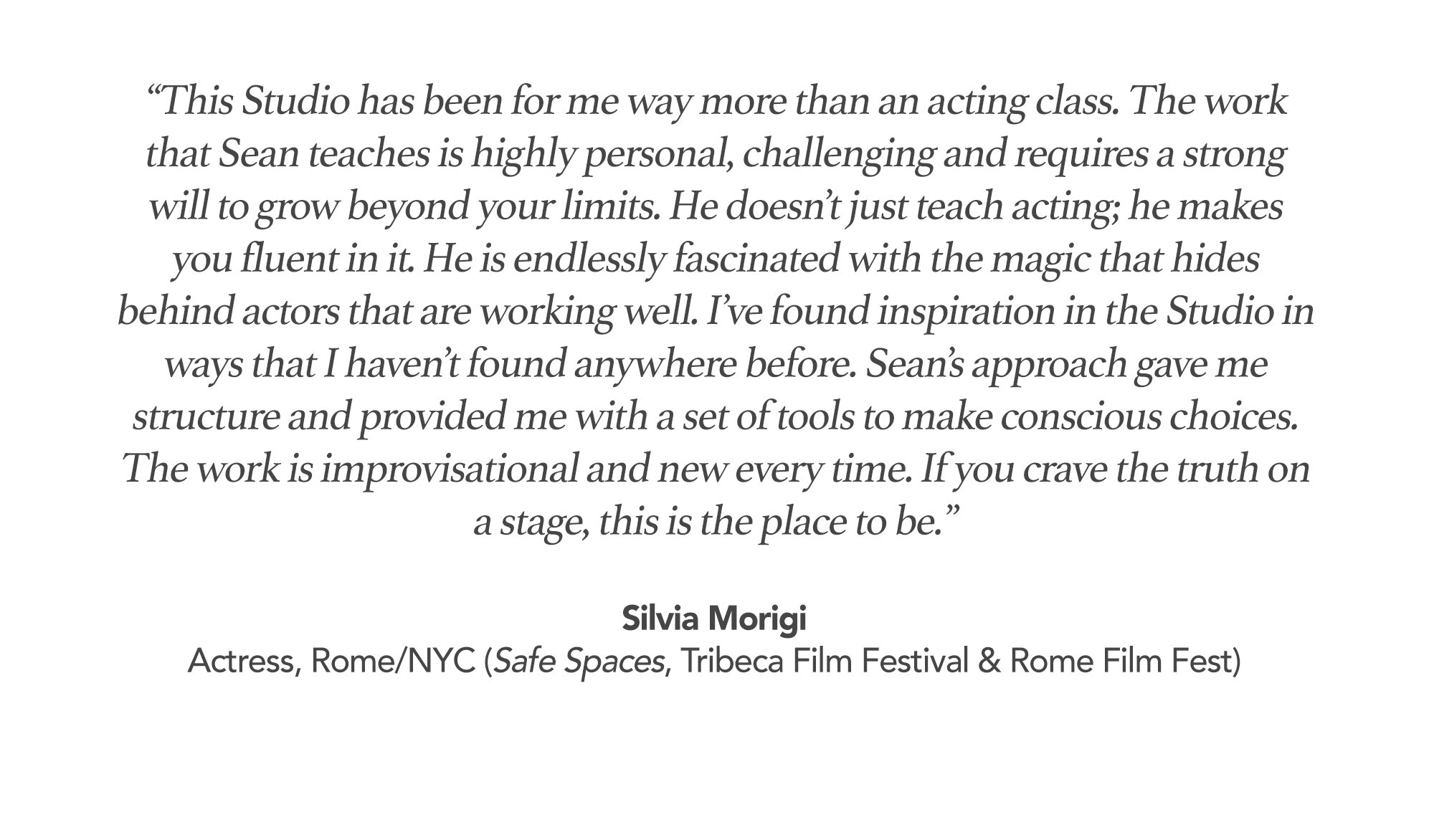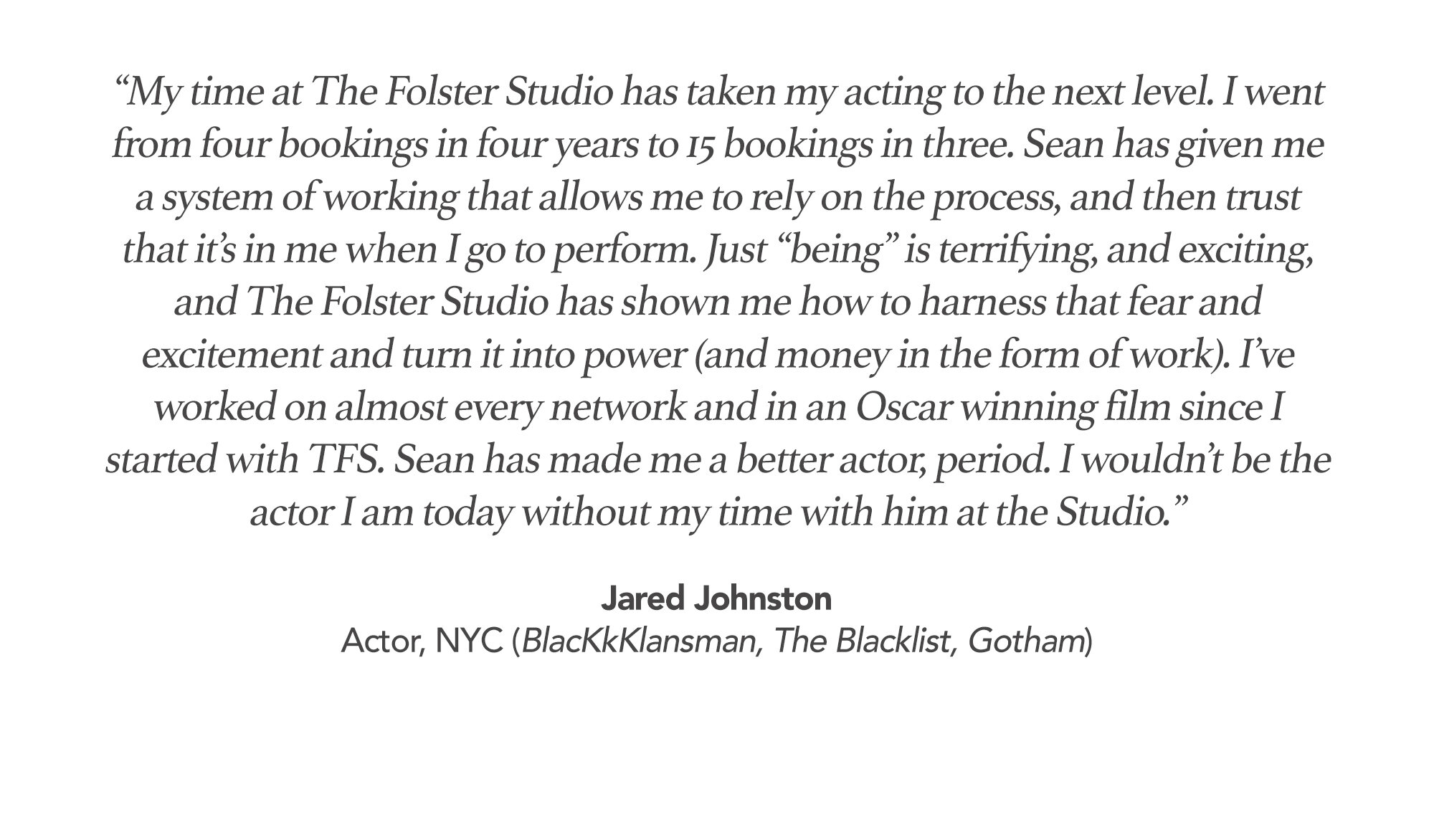
OUR WAY OF WORKING
The Acting Instrument
“You are all perfect exactly as you are...and you could use some improvement.”
Many of us come to acting cut off from ourselves and our true impulses. We then attempt to act in very heightened material and find it hard, if not impossible, to fulfill the demands of the script authentically. Often we try to bypass this difficulty by pushing, squeezing or forcing unfelt emotions, imitating what we think the emotional result "should" be. Or conversely, we may try to combat this tendency by appearing relaxed, simulating naturalness and approximating truthful line readings. Both of these strategies, sometimes employed consciously and often not, engender a sense of showing our part rather than really living it, like we're somehow standing outside of it.
Instrumental training is essential to developing a truthful, alive, present, emotionally free actor capable of going anywhere the material demands. Training the Instrument is the study of the Self in all its dimensions as it relates to the craft of acting: mind, body, voice, emotion and impulse. In our Studio, the individual strengths and challenges of each actor are acknowledged, with exercises and procedures prescribed to help break through specific experiential and expressive blocks. The Presence Of the Actor and all that affects it is of primary consideration in this portion of our work. What results is a new-found freedom and capacity to locate our public authenticity, profoundly be ourselves and share that on a moment-to-moment basis, with and without text.
Acting Technique
“Greatness needs that extra effort, which is commitment.”
Technique is What To Do and How To Do It. Many classes or workshops focus on a single methodology or area of study. In our Studio, we draw on the best elements of the three most powerful and effective approaches known to acting—namely, the Method, Meisner Technique and Adler Technique—to deal with common challenges every actor faces: organically addressing the needs of the text, building the physical and emotional life of the character, establishing compellingly present and truthful contact with the other actor, activating the world of the story through behavior, addressing the differences in style and approach from writer to writer, preparations for homework, auditions, rehearsals and performance, and more.
Each class is filled with a plethora of tools that the actor can both apply immediately and cultivate over time. As we sharpen our skills with focused, dedicated practice, we deepen our craftsmanship, professionalism and sense of empowerment.
Script Analysis & Interpretation
“If I believe me, you have no choice.”
Our breakthrough at The Folster Studio in this major area of the actor’s work is the creation of a procedure called Script Inquiry®. Relying heavily on an exercise called Taking It Off the Page he originally learned in private sessions from the late great acting coach Harold Guskin, and fortified through Stella Adler’s Gathering Impressions, Sean grew those approaches into an organic, flowing process that allows the work to stay intuitive and “out of your head”.
At more advanced levels, tools such as The Map, The Simple Reality, Emotional Paraphrasing, Actioning and Inner Imaging are activated not only through analysis but by in-the-moment, intuitive inquiry; not by imposing what “should” be there from the outside but through discovering it from the inside. The levels of this process unfold to comprise the bulk of our way of working in the Studio, as actors tackle each progressive layer through exercises, monologues, scenes and roles.
Scene Study & Characterization
“It’s not enough to have talent - you have to have a talent for your talent.”
You never know if you're any good until you test yourself against the great parts. At The Folster Studio, actors continuously test the boundaries of their craftsmanship by applying their skills to scripts of all different types: contemporary plays, classics, films, t.v. sides, monologues and original works. Merely focusing on Instrument and Technique can lead to narcissistic preoccupation, whereas great writing asks for the best in us. Great stories force us to go places we could never go without them.
Not only do we study the great writers, but we also utilize exercises to flex our understanding of the basic structure underlying all scene work. These exercises convert easily into tools for acting in today's fast paced work environments such as on-camera auditions, television and film where improvisation is prized and rehearsal time is severely limited, if it exists at all. Special attention is given to specific methods of homework and rehearsal that help the actor get past merely "running the scene" into the realm of living in the part.
